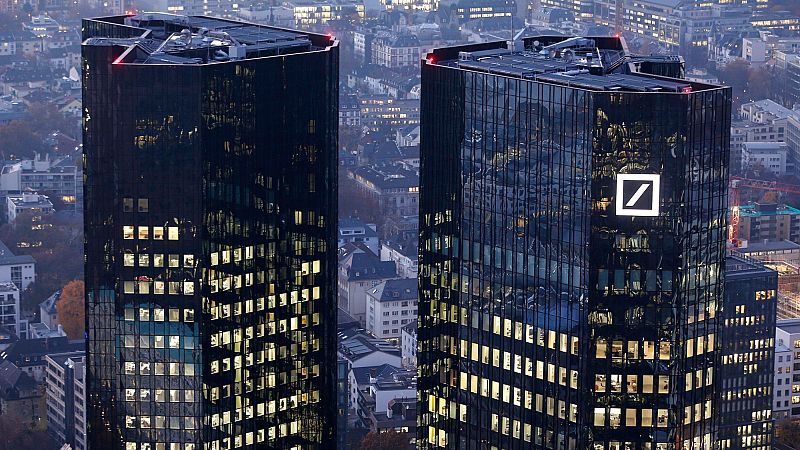
Deutsche Bank is set to rejoin the Euro Stoxx 50 after a seven-year absence, marking a symbolic comeback for Germany’s largest lender, whose shares have more than doubled over the past year.
The German bank's return comes at a pivotal moment for Europe’s financial industry, long weighed down by thin margins and heavy regulation.
Its promotion to the index, which brings together the eurozone's biggest and most traded blue-chip firms, suggests investors see the continent's lenders as steadier and more profitable, a development which could help lift both market sentiment and the wider European economy.
The shake-up pushes out companies squeezed by US trade policies in favour of those viewed as more resilient in the current climate.
Tariff-exposed firms lose index spots
Nokia, Stellantis and Pernod Ricard will be dropped from the Euro Stoxx 50, and will be replace by Deutsche Bank, Siemens Energy and Argenx on 22 September.
Nokia, now focused on telecoms network equipment such as 5G infrastructure rather than telephone handsets, has seen its US operations squeezed by higher import costs and mounting competition from rivals such as Ericsson and Huawei.
Stellantis, the maker of the Jeep, Peugeot and Fiat brands, has been hit hardest, warning of billions in losses from new US levies on European cars and components — a blow compounded by plant cutbacks and layoffs in North America.
Pernod Ricard, the French drinks group behind Absolut vodka and Chivas Regal whisky, has also faced extra duties on premium spirits, denting sales in one of its most important markets.
The damage has been reflected in share prices, with Stellantis down by 46% this year, Pernod off by around 24%, and Nokia sliding by 7% as tariffs and waning demand weigh on revenues.
Their exit from the Euro Stoxx 50 highlights not only individual underperformance but also a broader market shift, with tariff-exposed exporters falling out of favour with investors, who are turning instead to companies deemed more resilient.
Analysts expect the Euro Stoxx 50 to go up by around 6% by the end of the year, arguing that tariff risks and potential price pressures have already been factored into market predictions.







